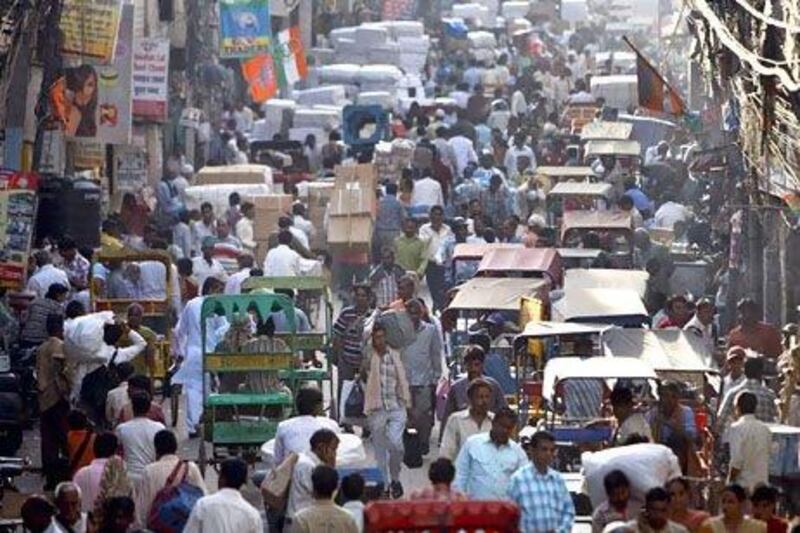MUMBAI // Corruption, red tape, and a slow reform process are hampering India's true potential for growth, the economist Nouriel Roubini, renowned for predicting the 2008 financial crisis, has warned.
Some forecasts suggest that the economy will grow at 6 per cent in this financial year, which is below the levels considered necessary to support the country's population.
"Six per cent is not so bad, but compared to the ambitions and the goal of the country, of growing much more robustly at 8 or 9 per cent, if not higher, to deal with the issues … 6 per cent is not sufficient," said Mr Roubini, the chairman of Roubini Global Economics, speaking in Mumbai. "A growth rate of 7 or 8 per cent or higher will be consistent with achieving the economic goals of reducing poverty, of having strong economic welfare for many people."
His comments come as the government seeks a rating upgrade for the country from Standard & Poor's, citing steps taken to control a high fiscal deficit and revive investments.
S&P and its rival Fitch had cut their outlook on India to negative last year, warning the country of a possible rating downgrade to "junk" on worsening public finances, a slowing economy and persistent political gridlock in New Delhi.
But in a meeting on Thursday with S&P, officials argued the outlook should be changed, and the country deserved an upgrade for actions taken by the prime minister Manmohan Singh's government to put finances in order and bolster investor confidence.
Threatened with a downgrade the country could ill-afford, Mr Singh's minority government took a slew of politically risky steps last September, including trimming budget-busting fuel subsidies, reining in public spending, and opening industries, such as retail and aviation, to more overseas investment.
While these measures have not yet revived economic growth that probably hit a decade-low of 5 per cent in the financial year that ended in March, brakes on public spending have helped to bring down the fiscal deficit under 5.2 per cent of GDP from 5.8 per cent a year earlier.
But Mr Roubini said that while cyclical global factors could partly be blamed for the slowdown in India, there were also "structural" factors holding back growth, he said.
"Economic reforms which are needed in many parts of the economy have been occurring too slowly," he said.
"China might have too [much] infrastructure, but India has too little infrastructure spend and a whole range of bureaucratic constraints has slowed down the investment. There's also some degree of political uncertainty with the general elections next year."
Corruption, meanwhile, was also a significant hindrance, he said. "Unfortunately there have been excessive levels of corruption. Red tape, a wide range of administrative restrictions and regulations on the economy, are not enhancing business confidence."
With a population of more than 1.2 billion and a young demographic, India was well placed for growth, he said.
GDP growth in the third quarter of the last financial year fell to 4.5 per cent and growth in the expected to hit a decade low for the whole fiscal year that ended March 31.
"This is a country that has a lot of economic potential," said Mr Roubini. "With the right reforms, this is a country that can grow significantly very fast."
* with Reuters





